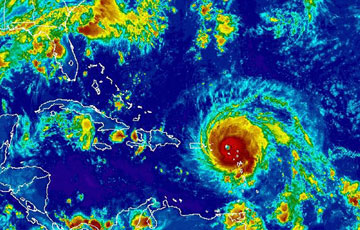 Due to the devastating losses and power outages Florida suffered from Hurricane Irma, the Internal Revenue Service has offered tax relief to affected taxpayers. The IRS extended the filing deadline for certain individual and business tax returns and tax payments. The tax relief is applicable to tax filing and payment deadlines that were due starting on September 4, 2017.The new filing deadline is January 31, 2018. This new deadline is also extended to individuals and businesses who filed for a filing extension of October 16 (individuals) and September 15 (business).
Due to the devastating losses and power outages Florida suffered from Hurricane Irma, the Internal Revenue Service has offered tax relief to affected taxpayers. The IRS extended the filing deadline for certain individual and business tax returns and tax payments. The tax relief is applicable to tax filing and payment deadlines that were due starting on September 4, 2017.The new filing deadline is January 31, 2018. This new deadline is also extended to individuals and businesses who filed for a filing extension of October 16 (individuals) and September 15 (business).
The extended deadline does not apply to tax payments related to 2016 tax returns because those payments were originally due on April 18, 2017.
The IRS is also waiving late-deposit penalties for federal payroll and excise tax deposits normally due during the first 15 days of the disaster period.
In order to qualify for this tax relief you must:
- Reside in an area designated by the Federal Emergency Management Agency (FEMA) as qualifying for either individual assistance or public assistance in Florida. (The IRS automatically provides filing and penalty relief to any taxpayer with an IRS address of record located in the disaster area. Therefore, there is no need for you to contact the IRS. But if you receive any penalties or late filing/payment notices from the IRS during the period set for relief, you should contact the number on the notice to have the penalties removed);
- Live outside the disaster area but have records which were necessary to meet IRS deadlines located in the disaster area; or
- Be a worker assisting with the relief activities who are affiliated with a recognized government or a philanthropic organization.
If you do not meet these requirements, but were still affected by Hurricane Irma, you may still qualify for relief from certain penalties. A tax professional can help you make this determination.
Individuals and businesses who suffered uninsured or unreimbursed disaster-related losses can choose to claim them on either the return for the year the loss occurred (in this instance, the 2017 return), or the return for the prior year (2016). If you need more information on disaster recovery, visit disasterassistance.gov.
For information on government-wide efforts related to Hurricane Irma, visit www.USA.gov/hurricane-Irma.